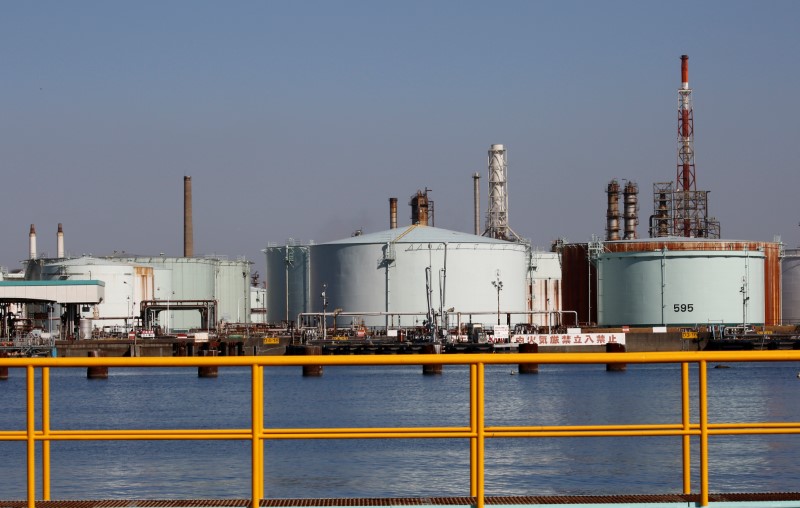(Bloomberg) -- Crude gained after signals of shrinking stockpiles in the U.S., but fears of the virus crimping demand are holding futures back from rallying past $40 a barrel.
The Energy Information Administration reported domestic crude inventories fell 7.2 million barrels last week, the biggest retreat since December, and at the nation’s biggest storage hub in Cushing, Oklahoma, supplies fell for an eighth straight week. Yet implied fuel demand ticked lower, deepening worries that accelerating coronavirus cases will limit the market’s recovery.
“In Cushing, we’re down to 45 million barrels in inventory. We’ve dropped from 65 million barrels in early May, which is pretty stinking meaningful,” said Matt Sallee, a portfolio manager at Tortoise.
Crude has climbed from negative territory in April to just above the $40-a-barrel mark, but U.S. futures have had trouble closing above that level. States like Texas and California are slowing down reopening plans with virus cases surging, further threatening fuel consumption from bouncing back.
“I expect WTI to trade in a narrow range above and below $38, with a fairly hard resistance at just over $40 and support at $36 in the near-term,” said Bart Melek, head of global commodity strategy at TD Securities.
At its peak, the virus erased as much as 30% of total oil demand with drivers off the road during lockdowns. Demand growth for refined oil products has peaked and will never return to the levels it reached before the coronavirus outbreak, according to Citigroup (NYSE:C). Triple-digit crude “has far more fantasy than reality at its heart,” analysts including Ed Morse said. As the global economy restarts, fewer people will fly and use their cars.
The EIA data showed that gasoline imports hit the highest level since August last week and are at the highest seasonally in nine years. Gasoline stockpiles unexpectedly rose as well.
“With the second wave hitting Texas and Florida, gasoline demand in those two states is down 10% week over week, and that is concerning,” said Jeff Currie, global head of commodities research at Goldman Sachs Group Inc (NYSE:GS)., in a Bloomberg Television interview.
On the bright side, OPEC producers are sticking to a deal to trim output. The producer group slashed oil production to the lowest level since the Gulf War in 1991, with Saudi Arabia faithfully delivering the extra curbs promised in June.
©2020 Bloomberg L.P.
